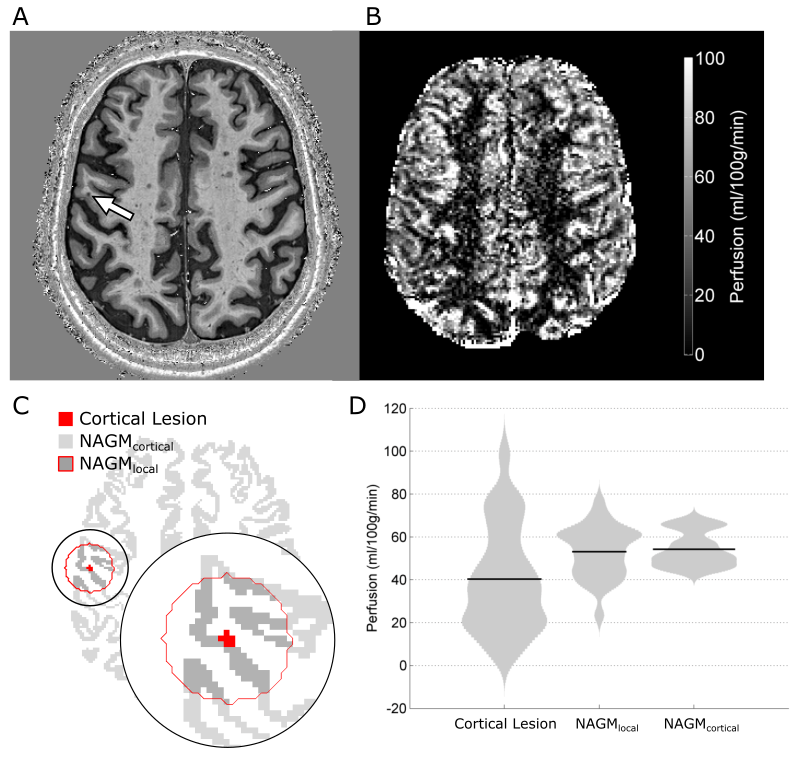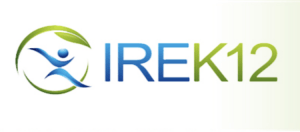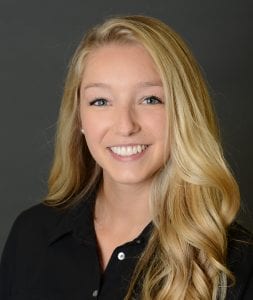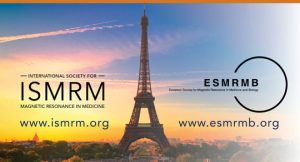 The Craig H. Neilsen Foundation has awarded Dr. Molly Bright a SCIRTS Pilot Grant to use imaging to characterize neurovascular plasticity in spinal cord injury. Working with Dr. Milap Sandhu, PT PhD at the Shirley Ryan Ability Lab, we will employ fMRI and cerebrovascular imaging techniques to characterize how one session of Acute Intermittent Hypoxia impacts brain and spinal cord physiology. Acute Intermittent Hypoxia is an emerging intervention that transiently improves motor function in individuals with spinal cord injury; although large clinical trials are getting underway, we aim to better understand the mechanisms for these functional improvements in order to optimize or tailor the intervention. This study will span two years, and recruitment is soon beginning for individuals with incomplete cervical spinal cord injury as well as uninjured control participants. Mark Hoggarth, DPT (left) will be joining the lab later this fall to take the lead on spinal cord imaging and analyses. Welcome Mark, and stay tuned for details on how to get involved with the study!
The Craig H. Neilsen Foundation has awarded Dr. Molly Bright a SCIRTS Pilot Grant to use imaging to characterize neurovascular plasticity in spinal cord injury. Working with Dr. Milap Sandhu, PT PhD at the Shirley Ryan Ability Lab, we will employ fMRI and cerebrovascular imaging techniques to characterize how one session of Acute Intermittent Hypoxia impacts brain and spinal cord physiology. Acute Intermittent Hypoxia is an emerging intervention that transiently improves motor function in individuals with spinal cord injury; although large clinical trials are getting underway, we aim to better understand the mechanisms for these functional improvements in order to optimize or tailor the intervention. This study will span two years, and recruitment is soon beginning for individuals with incomplete cervical spinal cord injury as well as uninjured control participants. Mark Hoggarth, DPT (left) will be joining the lab later this fall to take the lead on spinal cord imaging and analyses. Welcome Mark, and stay tuned for details on how to get involved with the study!
Author: Molly Bright
Announcing a new graduate level course at NU
 Loading...
Loading...
Open Position for a Postdoctoral Fellow in SCI
Update: An offer has been extended and accepted. Please see the Openings page for details on current positions.
We are excited to announce an opening for a full-time Postdoctoral Fellow to characterize neurovascular plasticity in Spinal Cord Injury. This study uses MRI of the brain, brainstem and spinal cord to probe the physiological mechanisms underpinning a new therapeutic intervention for SCI, which is currently undergoing clinical trials at the Shirley Ryan AbilityLab. This position is for 2 years with the possibility to extend.
For further details, please see the full description on the Openings page. Interested applicants are encouraged to get in touch with Prof. Bright with their questions prior to submitting an application. It may also be possible to arrange for an informal discussion in person during the ISMRM annual meeting in Montreal. (Applications received prior to June 17, 2018 will receive full consideration.)
We look forward to hearing from you!
Molly Bright elected to the ISMRM Brain Function Study Group committee

PI Molly Bright has just been elected as secretary of the Current Issues in Brain Function Study Group of the International Society for Magnetic Resonance in Medicine. She will be introduced formally at the annual meeting in Montreal, and will have a 4-year tenure advancing through the committee positions until finishing as Chair in 2023.
All interested in imaging brain function are invited to attend the study group meeting in Montreal, which will be held on Tuesday, May 14th, 13:30-14:30. We’re looking forward to working closely with the committee and members of the study group!
Welcome Jasmine Vu, Apoorva Ayyagari to the lab!
ANVIL welcomes two new students in Biomedical Engineering:
 Jasmine Vu is an incoming PhD student, having completed her Bachelors degree in Bioengineering at the University of Washington with a concentration in Diagnostics and Therapeutic Instruments. She was an active member of Bioengineers Without Borders, sparking her interest in clinical translation of new technologies, and has extensive research experience in optical coherence tomography through her work in the UW Biophotonics and Imaging Lab under Dr. Ruikang Wang. Jasmine will be co-supervised by Prof. Bright and Prof. Rad, developing fMRI as a tool for studying brain function after deep brain stimulation (DBS) implantation. Her research will radically enhance our understanding and optimization of DBS for treating Parkinsons Disease.
Jasmine Vu is an incoming PhD student, having completed her Bachelors degree in Bioengineering at the University of Washington with a concentration in Diagnostics and Therapeutic Instruments. She was an active member of Bioengineers Without Borders, sparking her interest in clinical translation of new technologies, and has extensive research experience in optical coherence tomography through her work in the UW Biophotonics and Imaging Lab under Dr. Ruikang Wang. Jasmine will be co-supervised by Prof. Bright and Prof. Rad, developing fMRI as a tool for studying brain function after deep brain stimulation (DBS) implantation. Her research will radically enhance our understanding and optimization of DBS for treating Parkinsons Disease.
 Apoorva Ayyagari is a new Masters student in the lab, joining us from Oregon State University where she recently completed her Bachelors degree in Bioengineering. She has contributed to research in the Social Mobility Lab there, analyzing the movement patterns of young children with and without developmental disabilities. Here at Northwestern, Apoorva will be using MRI techniques to study oxygen dynamics in the human spinal cord, and how this is affected in spinal cord injury.
Apoorva Ayyagari is a new Masters student in the lab, joining us from Oregon State University where she recently completed her Bachelors degree in Bioengineering. She has contributed to research in the Social Mobility Lab there, analyzing the movement patterns of young children with and without developmental disabilities. Here at Northwestern, Apoorva will be using MRI techniques to study oxygen dynamics in the human spinal cord, and how this is affected in spinal cord injury.
We are excited to have these two exceptional individuals join the team!
Ultra-high field MRI gives new insight into perfusion of lesions in Multiple Sclerosis
 In our latest paper in European Radiology, we use ultra-high field MRI to explore the clinical usefulness of an emerging technique for measuring perfusion that doesn’t involve the injection of contrast agents. Instead, in Arterial Spin Labeling (ASL) scans, we magnetically label the blood and then image it as it flows into the tissue, allowing us to quantify perfusion. We developed this technique for a specific clinical application: to better understand the role of small cortical lesions in Multiple Sclerosis (MS).
In our latest paper in European Radiology, we use ultra-high field MRI to explore the clinical usefulness of an emerging technique for measuring perfusion that doesn’t involve the injection of contrast agents. Instead, in Arterial Spin Labeling (ASL) scans, we magnetically label the blood and then image it as it flows into the tissue, allowing us to quantify perfusion. We developed this technique for a specific clinical application: to better understand the role of small cortical lesions in Multiple Sclerosis (MS).
In this technical development report, we present an optimized ultra-high-field ASL MRI acquisition that achieves high spatial resolution and low signal distortion. We assess the feasibility of using this imaging strategy to measure perfusion in MS cortical lesions, and demonstrate that our approach is sensitive to focal hypoperfusion in these small lesions. Because ASL MRI is safe and non-invasive, this type of imaging approach may facilitate the longitudinal study of acute lesion formation and development with frequent repeated scanning, allow us to test new therapeutic strategies, and give us better understanding of the heterogenous disease course in MS.
This excellent work was primarily accomplished by Rich Dury and Yasser Falah as part of their PhD research. For more details, the manuscript is available (open access) here: https://rdcu.be/8n4G
Career Development Award for PI Molly Bright
 We are excited to announce that Molly Bright has received an Interdisciplinary Rehabilitation Engineering Research Career Development (K12) Award! The IREK12 program recruits and trains scholars with engineering and other quantitative backgrounds to become successful rehabilitation scientists in basic, translational and/or clinical research. The award will fund research in adapting fMRI methodology for use in pediatric brain injury, constructing and validating new models of the BOLD signal in individual children, and then applying these techniques to study atypical motor systems in pediatric-onset hemiplegia. For more information about the IREK12 program, see the consortium’s webpage.
We are excited to announce that Molly Bright has received an Interdisciplinary Rehabilitation Engineering Research Career Development (K12) Award! The IREK12 program recruits and trains scholars with engineering and other quantitative backgrounds to become successful rehabilitation scientists in basic, translational and/or clinical research. The award will fund research in adapting fMRI methodology for use in pediatric brain injury, constructing and validating new models of the BOLD signal in individual children, and then applying these techniques to study atypical motor systems in pediatric-onset hemiplegia. For more information about the IREK12 program, see the consortium’s webpage.
Welcome Kristina Zvolanek to the lab!

ANVIL welcomes Kristina Zvolanek, a new PhD student in Biomedical Engineering. Kristina joins us from the University of Nebraska at Lincoln, where she earned her B.S. in Biological Systems Engineering and already accomplished a first-author paper in Medical Physics. As an undergraduate, she worked with Dr. Greg Bashford in the Biomedical Imaging and Biosignal Analysis lab, where she used Transcranial Doppler ultrasonography to measure cerebral blood flow patterns in children. At Northwestern, she will continue to pursue her interests in pediatric imaging and rehabilitation, adapting and applying functional and physiological MRI techniques to study neurovascular properties of the brain in pediatric-onset hemiplegia. She’s already familiar with Chicago and Northwestern, having previously done a summer research project with Dr. Sabrina Lee in the Neuromuscular Biomechanics Lab, and has gotten a jump-start on her graduate research in our lab prior to the start of classes in September. We are extremely excited to have Kristina on the team, and look forward to working with her in this exciting area of pediatric and rehabilitative neuroimaging!
Open position for a Postdoctoral Fellow
Update: An offer has been extended and accepted. Please see the Openings page for details on current positions.
We are excited to announce an opening for a full-time Postdoctoral Fellow to develop advanced MRI techniques to assess the interaction of neural activity and vascular physiology. These techniques will be applied in several collaborative themes, studying novel therapeutics in rehabilitation, exploring brain-body relationships in aging, and characterizing motor impairment and plasticity in children and adults following stroke. There is opportunity and support for the Fellow to initiate and lead new directions in basic and clinical research. This position is for a minimum of 2 years with the possibility to extend.
For further details, please see the full description on the Openings page. Interested applicants are encouraged to get in touch with Prof. Bright prior to submitting an application. It may also be possible to arrange for an informal discussion in person during the ISMRM annual meeting in Paris. (Applications received prior to July 2, 2018 will receive full consideration.)
We look forward to hearing from you!
Abstracts accepted for ISMRM meeting in Paris
 Three abstracts from PhD students have been accepted for poster and oral presentations at the annual meeting of the International Society of Magnetic Resonance in Medicine (ISMRM) being held this June in Paris, France.
Three abstracts from PhD students have been accepted for poster and oral presentations at the annual meeting of the International Society of Magnetic Resonance in Medicine (ISMRM) being held this June in Paris, France.
Congratulations to Elena Kleban, Rich Dury, Yasser Falah, and Kingkarn Aphiwatthanasumet on your success!